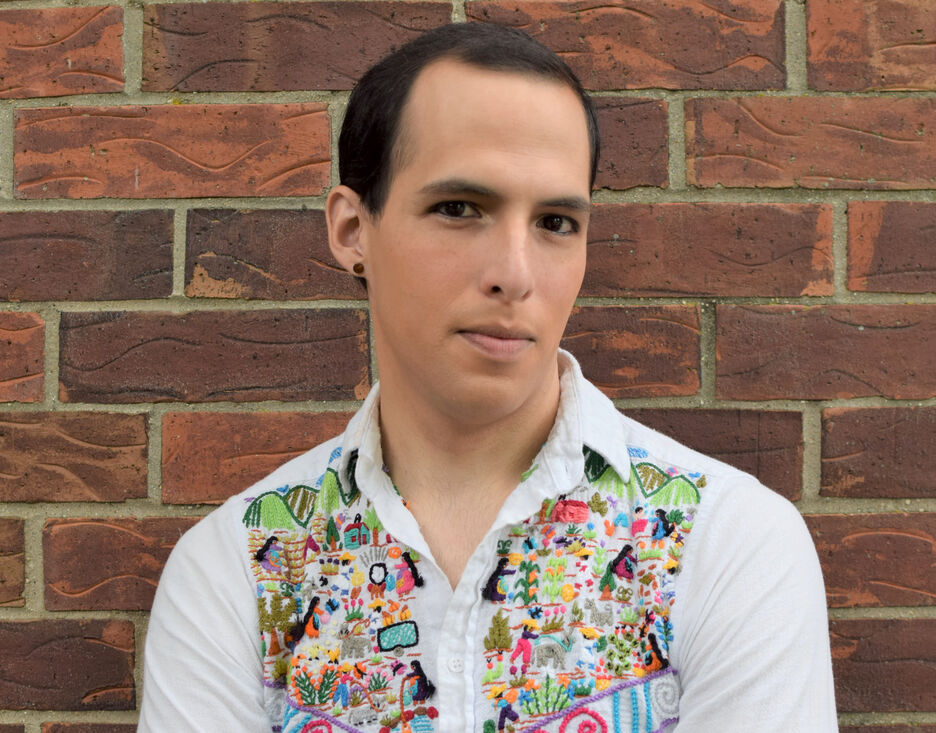Interview with Dr. Fátima Sancheznieto on the occasion of the AHEAD Congress
Since graduating with her PhD from Oxford University in Biomedical Sciences, Dr. Fátima Sancheznieto joined the University of Wisconsin – Madison Institute for Clinical and Translational Research and Center for the Improvement of Mentored Experiences in Research as a researcher focused on developing, evaluating, and implementing interventions that enact departmental and institutional change for the improvement of early career researcher training environments. She is also the president of the nonprofit volunteer organization, Future of Research, which empowers early career researchers to advocate for better working and training conditions.
Her seminar will deal with the importance of mentoring in academia and discuss the difficulties faced by academics both as mentees and mentors during their early careers. The seminar aims to empower early career researchers by discussing how to define the tools to create a healthier and more collaborative work environment.
Interview
Fátima, your work has been focused on improving Early Career researchers’ (ECR) working environment, can you tell us how academia define the term “early career” and why their work environment is at risk?
I think depending on who you ask, you would find different definitions. Here in the United States, the National Institutes of Health has a time limit after receiving a PhD or other advance degree (MD for example) to be eligible for what they term “early stage investigator.” Personally, I tend to think of ECRs as ranging from graduate students through the junior faculty (pre-tenure) stage, but that’s assuming a traditional academic tenure faculty track.
There have been quite a few studies in the last years showing the mental health and financial toll that academic training takes on people, and we know from the research that things like gendered harassment are pretty common in training environments. You couple that with hyper-competition for few positions and the imbalances of power between senior mentors and junior mentees, and you have a recipe for environments that can sometimes overlook people’s humanity and even cause quite a bit of harm.
In your professional view, which are the main struggles ECRs face in universities/research institutions?
As I mentioned above, there is the financial precarity due to low wages. We also know mental health struggles are relatively common. The prevalence of abuses of power and harassment likely varies from context to context, but I have yet to see an academic training environment that prevents and addresses these in a successful and trauma-informed way if and when they happen.
In your research, have you found any supporting data on mental health struggles in Early Career researchers and its link to specific academic working environments? In your opinion, are academic working environments impacting the decision of ERCs to leave the academic path?
I think the data is pretty clear at this point on the mental health issue. When I first started getting interested in this topic as a grad student, you would commonly hear things like “oh that doesn’t happen here…” I think the pandemic’s exacerbation of mental health issues, along with the increase in data available are leading more people at senior levels to understand the breadth and depth of the problem. I do think the mental health issue and environments contribute to people leaving, for sure. When you look at the data though, you see other large drivers, especially availability of jobs and starting salaries outside of academia, as other strong forces causing people to leave.
Can you tell us some examples of successful interventions you’ve implemented in research centers that have potentially led to an improvement in ECR experiences?
Some of the best work my mentors and collaborators have done are interventions where our mentor training is only one aspect of the entire intervention. In other words, we’ve been involved with programs that are well-funded and have leadership support for sustainability and that involve many moving parts in terms of training, community building, propagation strategies, and communities of practice that we really see having pretty impressive impact.
Finally, could you explain to us what the NGO Future of research, of which you are the president, does?
Future of Research started as a group of postdocs in the Boston area, almost ten years ago, having conversations and getting together in meetings with leadership to discuss changes that could be led by ECRs. This was before unionization efforts in the US got such a big push, and when organizing was happening very much in siloed, local efforts. We’ve had quite a few changes over the years and are actually not as active as we used to. But in our ten years we have been involved in representing ECR voices in spaces like the National Academies and National Institutes of Health, publishing data on postdoc salaries, and convening meetings from which reports on training environments have been published. Our work tends to shift depending on who is on our board of directors and where their interests intersect with the needs we see in the community.
Many thanks, Fátima!
We are looking forward to attending your seminar at AHEAD!

